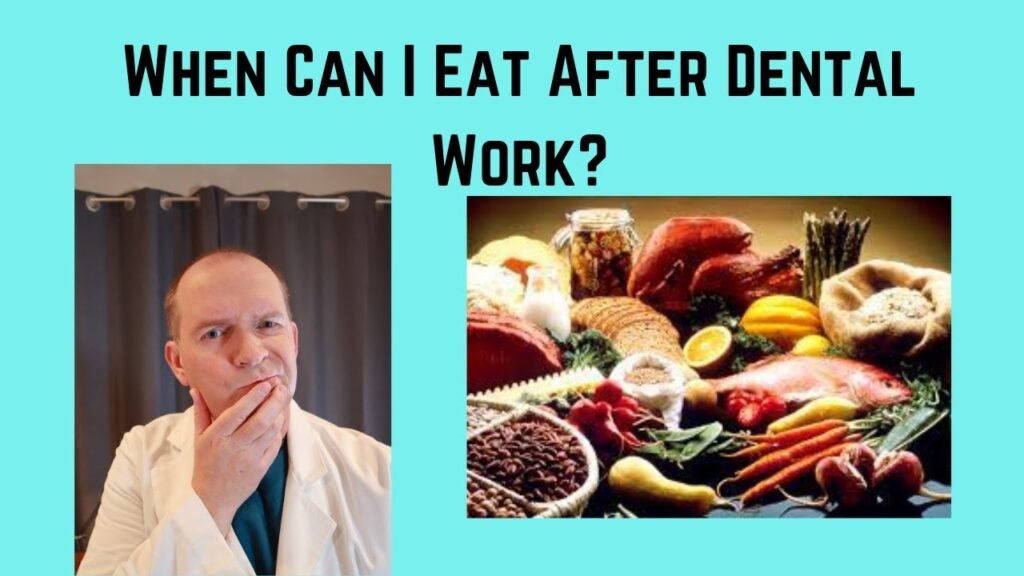When Can I Eat After Getting a Tooth Pulled?

So, you've just had a tooth pulled and you're probably wondering when you can finally dig into your favorite foods again. Whether it was a simple extraction or a more complex procedure, it's important to know the right time to start eating normally. In this article, we'll discuss the best foods to eat after having a tooth removed and when you can safely resume your regular diet. Say goodbye to the bland and boring meals - we've got all the answers you need to satisfy your cravings without compromising your healing process.
How soon can you eat after having a tooth removed?
After having a tooth pulled, it's important to give your mouth time to heal. For the first day following the surgery, it's recommended to stick to a liquid diet to allow the extraction site to clot and begin the healing process. Avoiding solid foods that require chewing can help prevent any irritation or damage to the area.
Soft foods like pudding, smoothies, and soup are good options to consider during the initial 24-hour period after tooth removal. These foods are easy to consume and won't put pressure on the extraction site. It's best to avoid anything that could potentially dislodge the blood clot or cause discomfort. Taking care of your diet in the immediate aftermath of tooth extraction can help ensure a smooth and speedy recovery process.
When can I drink after tooth extraction?
After a tooth extraction, it is recommended to wait about 7-10 days before drinking alcohol, as advised by your dentist or oral surgeon. During this time, opt for water to stay hydrated and aid in the healing process. Remember, it's best to follow professional guidance to ensure a smooth and speedy recovery.
Is it safe to eat if my tooth extraction is still bleeding?
If you have recently had a tooth extraction and are experiencing bleeding, it is important to be mindful of your diet. Stick to soft or liquid form foods for the first 24 hours after the surgery to avoid further irritation to the extraction site. It's best to avoid hot liquids as well, as they can dissolve the blood clot and lead to prolonged bleeding. Remember to take it easy and not vigorously chew anything that may cause additional trauma to the area.
It's crucial to be cautious with your food choices after a tooth extraction, especially if you are still experiencing bleeding. Hard or crunchy foods should be avoided as they can worsen the bleeding and prolong the healing process. Opt for gentle, soft foods that won't put too much pressure on the extraction site. By following these guidelines, you can help promote a smoother and quicker recovery from your tooth extraction.
In summary, if you are dealing with bleeding after a tooth extraction, it's important to be mindful of what you eat. Stick to soft or liquid form foods, avoid hot liquids, and steer clear of hard or crunchy foods that can exacerbate the bleeding. By being cautious with your diet, you can help support the healing process and minimize any discomfort or complications.
Post-Tooth Extraction Diet: Timing and Tips
After a tooth extraction, it is crucial to follow a post-tooth extraction diet to aid in the healing process and prevent complications. It is recommended to wait at least 24 hours before consuming solid foods to allow the blood clot to form properly. During this time, opt for soft, easy-to-chew foods such as yogurt, soup, mashed potatoes, and smoothies. Avoid hot or spicy foods, as well as using a straw, as these can dislodge the blood clot and delay healing. Gradually introduce solid foods back into your diet as recommended by your dentist or oral surgeon to ensure a smooth recovery. Remember to stay hydrated and practice good oral hygiene to promote healing and prevent infection.
Navigating the Aftermath: Eating After Tooth Extraction
After undergoing a tooth extraction, it is important to carefully navigate your diet to ensure a smooth recovery process. Opt for soft foods such as yogurt, mashed potatoes, and smoothies to avoid irritating the extraction site. Avoid crunchy or hard foods that may cause discomfort or disrupt the healing process. Remember to stay hydrated and maintain good oral hygiene to promote healing and prevent infection.
As you navigate the aftermath of a tooth extraction, prioritize your oral health by following your dentist's instructions and choosing foods that are gentle on your mouth. Incorporate nutrient-rich foods like soups, scrambled eggs, and steamed vegetables to support your body's healing process. Be mindful of any pain or swelling and consult your dentist if you experience any complications during your recovery period.
After having a tooth pulled, it is essential to follow post-operative instructions provided by your dentist to ensure proper healing. While it is important to avoid eating immediately after the procedure to prevent complications, you can gradually introduce soft foods into your diet as you feel comfortable. Remember to avoid hot, spicy, or crunchy foods that may irritate the extraction site. By taking care of your oral health and following your dentist's advice, you can promote a speedy recovery and get back to enjoying your favorite meals in no time.